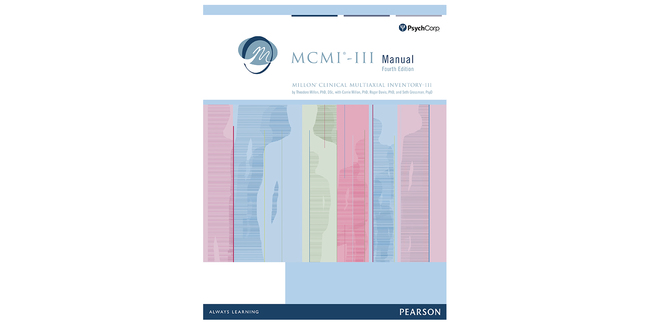The Millon® Clinical Multiaxial Inventory-III (MCM-III) reports patient personality characteristics and an assessment of clinical syndromes within the context of those characteristics
Millon Clinical Multiaxial Inventory-III
MCMI-III
The Millon® Clinical Multiaxial Inventory-III (MCM-III) reports patient personality characteristics and an assessment of clinical syndromes within the context of those characteristics‹ View all tests and materials
MCMI-III Q-global Interpretive Report
9780749166243
Qualification Level
C
£54.60